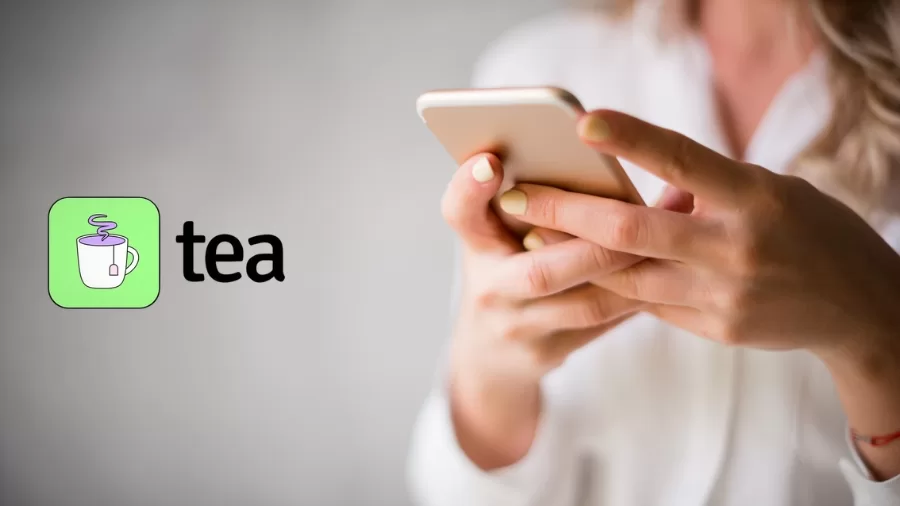Viral Dating App “Tea” Leaks More Than Gossip—User Data Too

- A major security breach on the anonymous dating app “Tea” has exposed user images, IDs, and over a million private messages.
- UK users are being urged to secure their digital data and review privacy settings on the viral “Tea” app.
What Is the Anonymous Dating App Tea and Why Did It Become So Popular?
The users of the “Tea”, an anonymous dating app, are increasing fast and thereby gaining popularity among Generation Z within the UK, the US, and elsewhere. It allows users—mainly women—to anonymously review men they’ve dated, share red flags and green flags, or offer personal dating experiences. Think of it as a whisper network made mobile.
The app also functions as a forum for candid conversations about dating safety, relationships, and identity—all shared anonymously.
The anonymous dating app Tea has surged in popularity over the past two months. According to Sensor Tower, it was downloaded over 500,000 times during that period. By July 2025, it ranked among the top lifestyle apps on the Apple App Store in the US and trended across the UK and Germany.
It currently boasts more than 4 million global users, with its core audience between the ages of 16 and 25. Much of its growth has been driven by viral visibility on TikTok and Reddit.
Unlike traditional dating platforms, the “Tea” app does not connect people for romantic matches. Instead, it focuses on sharing dating stories, anonymous feedback, and social reviews. This makes the platform more conversational but also riskier when it comes to data privacy.
Tea App Data Breach: What Happened and What Was Exposed?
The “Tea” app data breach came to light after users on 4chan discovered a publicly accessible database URL tied to Tea’s legacy storage system. Cybersecurity researchers confirmed that the system lacked basic encryption and authentication.
Reports from 404 Media and Business Insider detailed the scope of the breach:
- 72,000 images were exposed
- 13,000 images were selfies or ID verification photos
- 59,000 were images from public posts, comments, or DMs
- Over 1.1 million private messages were accessible
- User IDs and timestamps were also part of the breach
This exposed data was stored in an insecure Firebase database. Until the beginning of 2024, the system was active, including data from users who signed up on Tea before February 2024.
An ID photo, a private message, or an identity user ID mentioned therein carries the possibility of one being doxxed, impersonated, or harassed, even though Tea has assured that no phone numbers or emails were exposed.
This breach constitutes the most significant data leak of an anonymising app of 2025, especially with regard to UK users of Tea.
How the Tea App Data Breach Affected UK Users and Beyond
Many UK users downloaded the Tea app for its promise of anonymity. That trust has now been shaken. The data breach affected thousands of users who shared personal photos or used the app to discuss sensitive dating issues.
Because the platform stores ID photos and ties posts to user IDs and timestamps, even without names or email addresses, users can still be identified.
The breach could especially impact underage users. Since Tea is widely used by teenagers, its mishandling of legacy data could trigger scrutiny under the UK GDPR. The Information Commissioner’s Office (ICO) may investigate potential violations regarding child data protection.
On social platforms like TikTok and Reddit, users are deleting the app and calling for accountability. Public sentiment is shifting rapidly against anonymous dating platforms that fail to protect privacy.
How Is the Anonymous Dating App Tea Responding?
Tea acknowledged the breach on July 25, 2025, via statements to media outlets. The post confirmed unauthorised access to a legacy data system that had stored content from early 2024 and earlier.
According to the company:
- The exposed system was taken offline
- The issue affected users who joined before February 2024
- Additional protections are now in place for new users
However, Tea has not provided:
- A formal press release or public audit
- Direct notifications to affected users
- An updated privacy policy reflecting the breach
From July 29, 2025, the anonymous dating app “Tea”, without the mention of any in-app official communication or alerts about the breach, is still available on the App Store and Google Play.
What Should “Tea” App UK Users Do Now?
If you’ve ever used the Tea app, especially before February 2024, you should take steps immediately to protect your data.
1. Delete the App
Removing the app stops future data collection.
2. Revoke Permissions
Go to your phone’s settings and take away the probability of Tea accessing your camera, contacts, and location.
3. Monitor for Suspicious Activity
Watch for phishing attempts or suspicious login alerts, especially if your selfie or ID was exposed.
4. Request Your Data Be Deleted
Under UK GDPR rules, you have the right to request full data deletion. Contact Tea support or check their website for a data removal form.
5. Change Any Linked Passwords
If you reused a password when signing up for “Tea”, change it on other accounts.
6. Talk to Young Users
If you know someone under 18 who used “Tea”, help them assess what content they shared and support them in securing their identity.
What Users Are Saying About the Tea App Data Breach
On social media, UK and US users alike have voiced anger, disappointment, and concern. Many express regret for sharing photos and stories on the app.
The most common criticisms include:
- Lack of direct communication from Tea
- Absence of privacy tools within the app
- Continued availability of the app despite the breach
Apple and Google have been the focus of campaigns to remove these apps or to ensure some kind of standard from the app stores for such anonymity modes.
Can Anonymous Dating Apps Like Tea Still Be Trusted?
Anonymous apps like “ Tea” appeal to users who want honest, candid conversations. But this breach reveals the danger of assuming anonymity means safety.
Every app stores your data somewhere. And if that data isn’t protected, it can be exposed, even without your name attached.
UK users of the “Tea” app are now faced with a hard truth: anonymity doesn’t prevent accountability, and privacy failures can impact anyone.
Final Thoughts: What the Tea App Data Breach Means for Your Digital Privacy
The anonymous dating app “Tea” rose quickly through app store rankings and gained millions of users. But its weak data protections have now triggered one of 2025’s most significant breaches.
If you’ve ever shared any information via “Tea”, act now; check your privacy settings, delete the app if necessary, and keep yourself posted on how the application’s digital footprint is dealt with.
Once trust is broken, usually in these anonymous types of spaces, it could take many years for it to be restored.











